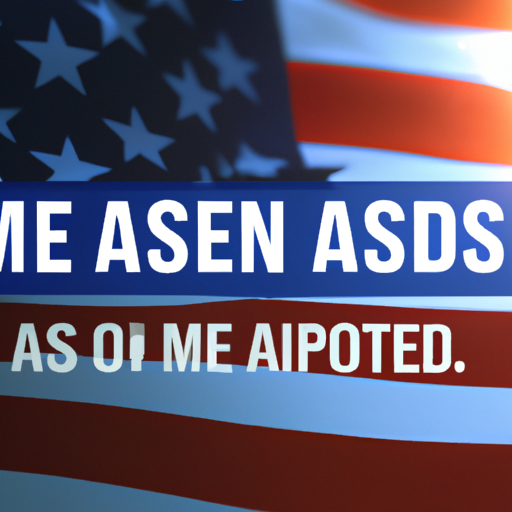The Economic Impact of Israel’s VWP Admission on the U.S. Economy
The recent admission of Israel into the Visa Waiver Program (VWP) is set to have a significant impact on the U.S. economy. According to a study by the NFTC Foundation, this move is projected to add a whopping $1.8 billion to the U.S. economy. This is a significant development, considering the current economic climate and the need for economic recovery strategies.
The Visa Waiver Program is a U.S. government initiative that allows citizens of specific countries to travel to the United States for tourism, business, or while in transit for up to 90 days without having to obtain a visa. The program aims to eliminate unnecessary barriers to travel, stimulating tourism and commerce, and fostering mutual understanding and cooperation between the U.S. and the participating countries.
Israel’s admission into the VWP is a game-changer. It’s not just about the ease of travel for Israeli citizens; it’s about the potential economic benefits that this move brings to the U.S. economy. The NFTC Foundation’s study estimates that the increased travel from Israel could support approximately 3400 additional U.S. jobs. This is a significant boost, especially in the tourism and hospitality sectors, which have been hard hit by the pandemic.
Moreover, the increased travel is expected to generate an additional $1.8 billion in economic output over the next decade. This includes direct spending by Israeli tourists and business travelers, as well as indirect and induced impacts. Direct spending refers to the money spent by travelers on goods and services, such as hotels, restaurants, and retail shopping. Indirect impacts refer to the purchase of goods and services by businesses to support the increased tourism, such as food suppliers for restaurants or cleaning services for hotels. Induced impacts refer to the increased household spending by employees whose incomes are supported by the direct and indirect spending.
The benefits of Israel’s VWP admission extend beyond the immediate economic impact. The increased travel and tourism will foster cultural exchange and mutual understanding, strengthening the ties between the U.S. and Israel. This could lead to further cooperation in various sectors, including technology, healthcare, and education, potentially opening up new opportunities for economic growth and development.
However, it’s important to note that these benefits are not guaranteed. They depend on various factors, including the global economic climate, travel restrictions related to the pandemic, and geopolitical developments. The U.S. government and the tourism industry need to work together to ensure that the potential benefits of Israel’s VWP admission are realized.
In conclusion, Israel’s admission into the Visa Waiver Program is a significant development that could have a substantial impact on the U.S. economy. The increased travel from Israel could support thousands of additional jobs and generate billions in economic output. However, realizing these benefits will require strategic planning and cooperation between the government and the tourism industry. Despite the challenges, the potential rewards make this a development worth watching.
How Israel’s VWP Admission Could Boost U.S. Economy by $1.8 Billion

The recent admission of Israel into the Visa Waiver Program (VWP) is set to have a significant impact on the U.S. economy. According to a study by the NFTC Foundation, this move could potentially add a whopping $1.8 billion to the U.S. economy. Now, that’s a figure worth talking about!
So, how exactly does this work? Well, the Visa Waiver Program allows citizens of participating countries to travel to the United States without a visa for stays of 90 days or less. This means that Israeli citizens can now travel to the U.S. more easily, and vice versa. This ease of travel is expected to increase tourism, business travel, and other forms of exchange between the two countries.
The NFTC Foundation’s study estimates that the increased travel resulting from Israel’s admission to the VWP could lead to an additional 394,000 visitors from Israel to the U.S. annually. These visitors are expected to spend approximately $1.8 billion in the U.S. economy. This spending will not only boost the tourism sector but also have a ripple effect on other sectors such as retail, hospitality, and transportation.
Moreover, the increased travel is also expected to create around 24,000 new jobs in the U.S. These jobs will be spread across various sectors, further stimulating economic growth. The increased economic activity and job creation will also lead to higher tax revenues for the U.S. government.
But the benefits of Israel’s VWP admission extend beyond just the economic sphere. The ease of travel will also foster greater cultural exchange and understanding between the people of the two countries. This could lead to stronger diplomatic ties and cooperation in various fields, from technology and innovation to security and defense.
The VWP also has a security component. Participating countries are required to share information with the U.S. about known or suspected terrorists and criminals. This means that Israel’s admission to the VWP could also enhance U.S. national security by improving information sharing and cooperation on security matters.
However, it’s important to note that these benefits are not guaranteed. They depend on a variety of factors, including the global economic situation, geopolitical developments, and the policies of the two countries. For instance, if the U.S. or Israel were to impose travel restrictions or other barriers, it could limit the potential benefits of the VWP.
In conclusion, Israel’s admission to the Visa Waiver Program could have significant economic benefits for the U.S., potentially adding $1.8 billion to the economy and creating thousands of new jobs. It could also foster greater cultural exchange and enhance security cooperation. However, realizing these benefits will require careful management and cooperation between the two countries. It’s an exciting development, and it will be interesting to see how it unfolds in the coming years.
Understanding the Financial Benefits of Israel’s Admission to the VWP for the U.S. Economy
The recent admission of Israel into the Visa Waiver Program (VWP) is a significant development that is set to have a profound impact on the U.S. economy. According to a study conducted by the NFTC (National Foreign Trade Council), this move is projected to add a whopping $1.8 billion to the U.S. economy. Now, that’s a figure worth talking about!
So, what exactly is the Visa Waiver Program, and how does it work? Simply put, the VWP allows citizens of participating countries to travel to the United States for tourism or business for stays of 90 days or less without obtaining a visa. This not only simplifies the travel process but also encourages more frequent and spontaneous trips, leading to increased tourism and business exchanges.
Now, let’s delve into how Israel’s admission into the VWP is set to boost the U.S. economy. The most direct impact will be seen in the tourism sector. With the visa requirement lifted, more Israeli citizens are likely to visit the U.S., leading to increased spending on accommodation, dining, shopping, and entertainment. This surge in tourism will create jobs, stimulate local economies, and generate tax revenue.
But the benefits don’t stop at tourism. The VWP also facilitates business exchanges by making it easier for professionals to travel for meetings, conferences, and short-term projects. This increased business travel will foster stronger ties between U.S. and Israeli companies, potentially leading to more significant investments, partnerships, and trade deals.
Moreover, the VWP is also expected to boost the education sector. With easier access to the U.S., more Israeli students may choose to study at American universities, contributing to the diversity of the student body and bringing in valuable tuition dollars.
The NFTC study estimates that Israel’s admission to the VWP could result in an additional 600,000 Israeli visitors to the U.S. over the next decade. This influx of visitors is expected to support nearly 12,000 American jobs and generate $1.8 billion in economic output.
But the benefits of Israel’s admission to the VWP extend beyond the purely economic. It also strengthens diplomatic ties between the U.S. and Israel, fostering a closer relationship that can have positive implications for security, technology exchange, and cultural understanding.
In conclusion, Israel’s admission to the Visa Waiver Program is a win-win situation for both countries. For Israel, it simplifies travel to the U.S., opening up new opportunities for tourism, business, and education. For the U.S., it promises a significant boost to the economy, job creation, and stronger diplomatic ties. It’s a shining example of how easing travel restrictions can have far-reaching benefits, and we can’t wait to see how this exciting development unfolds.
